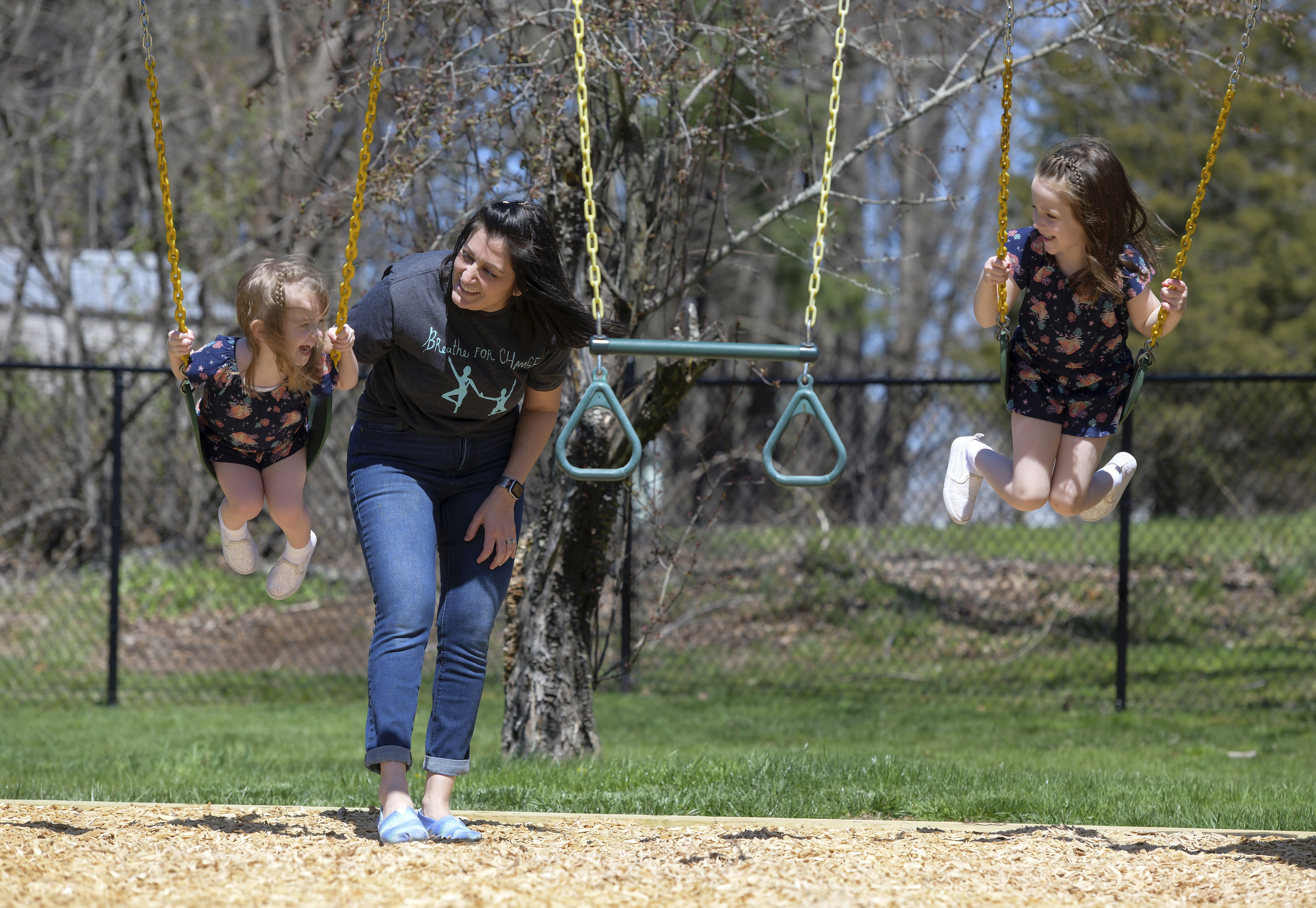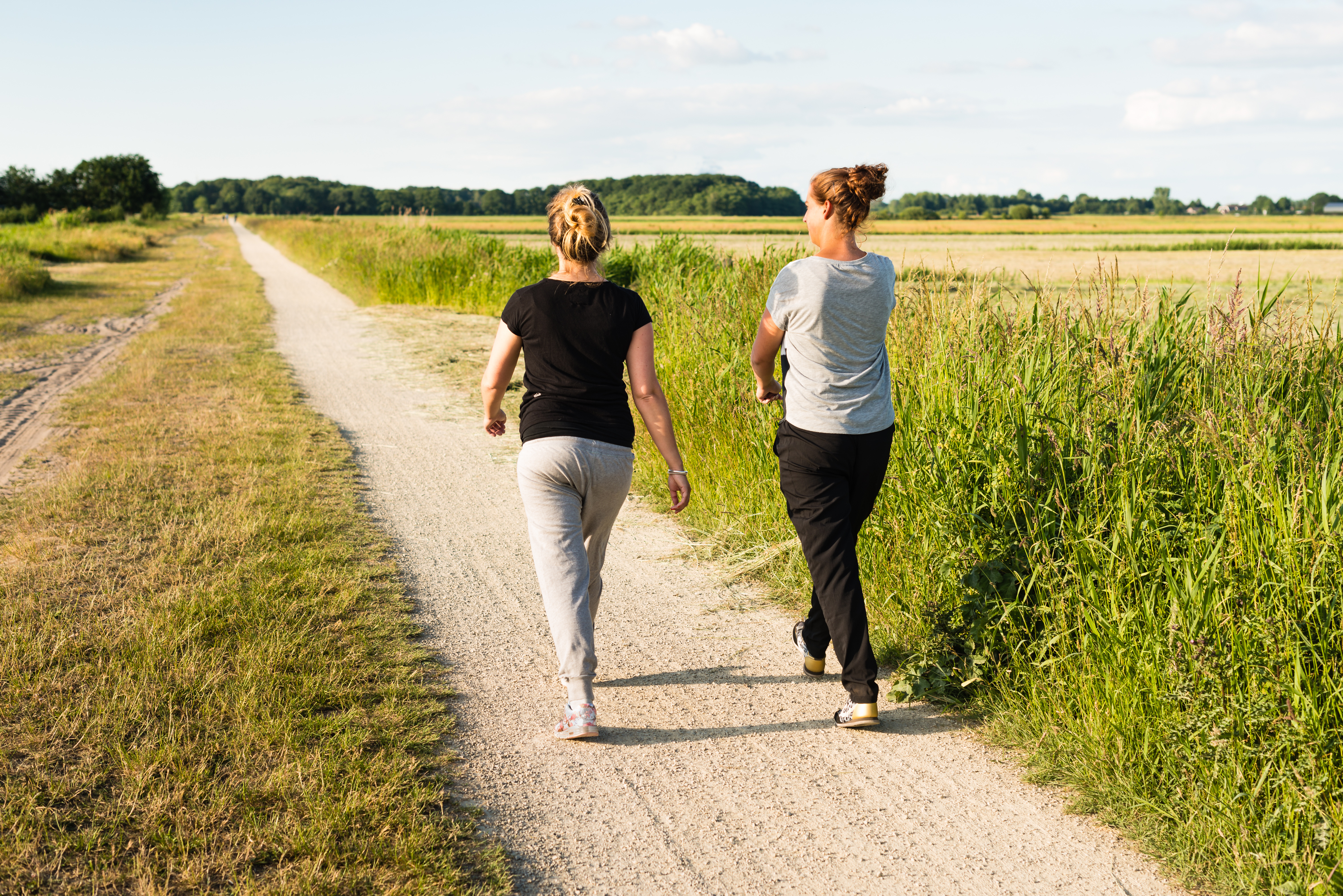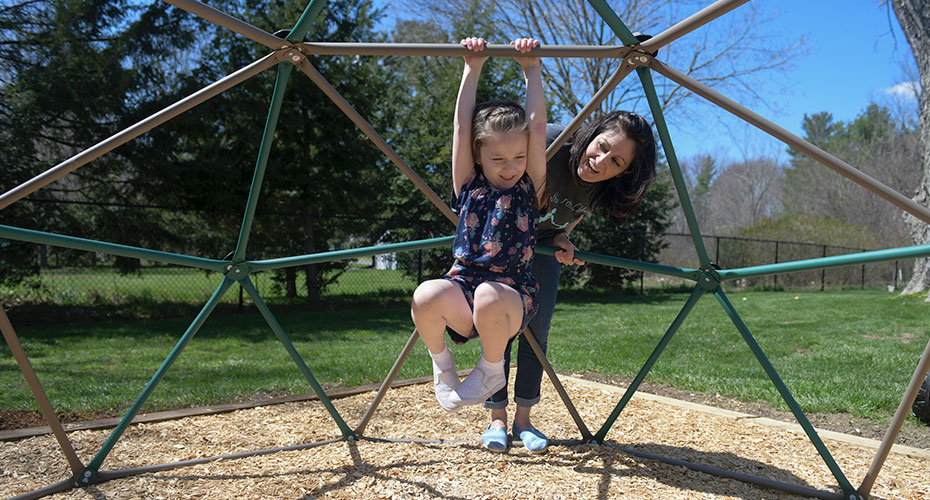Jun 18, 2022
Reconnecting with your health
Between teaching high school and caring for two children under 6, Sarah Casimiro of West Bridgewater doesn’t have much free time.
But she has carved out room in her schedule to pursue a 200-hour yoga certification program that will allow her to teach classes in six months’ time. Though it’s easy to let this type of self-care fall by the wayside, her ability to practice mindfulness and meditation is crucial for her overall well-being, she said.
“Meditation helps me ground myself, and for someone who is anxious, it's very helpful,” said Casimiro, 40. “It helps me to be thankful for what I've got around me and acknowledge the good rather than dwelling on the fear and anxiety about what's going on in the world.”
She is also seeing a therapist and making sure she’s up to date on her appointments to help manage her type 1 diabetes, she said.

Like Casimiro, many Americans are working on their wellness – both physical and mental – as we emerge from a deadly pandemic. And while health officials warn we are not yet out of the woods, declining COVID-19 numbers and a return to social activities have gotten us closer to normalcy than we have been in more than two years.
But after a long period of disruption and stress, it can be difficult to know where to start a return to wellness.
Not-for-profit health plan Blue Cross Blue Shield of Massachusetts has created a 5-step checklist to help members feel healthier, balance body and mind, and get support when and where they need it, utilizing benefits in their health plan.
Coverage spoke to Dr. Karen Sherritt, Wellness and Resiliency Lead in the Division of Primary Care at Brigham and Women’s Hospital, about these and other ways to restore our bodies and minds.
Foster social connections
Research has linked loneliness to higher risk for heart attacks, strokes, depression, and Alzheimer’s disease, Sherritt said. Because the last several months have been so isolating, particularly for older adults, it is especially important for people to strengthen existing relationships and foster new ones.
“We all need alone time, but feeling lonely is a stressor,” Sherritt said. “The COVID-19 pandemic has heightened the sense of loneliness for a lot of people.”

To start reconnecting, Sherritt recommends exploring volunteer opportunities, enrolling in a class for a new hobby or skill, and finding low-stress ways to socialize, like asking a neighbor to join you on a walk. Setting up regular video chats with family and friends who do not live close by can also nurture longtime relationships.
Catch up on doctor visits
Now is a great time to schedule appointments that may have been skipped when coronavirus numbers were skyrocketing, Sherritt said.
“Seeing a doctor regularly is so important – for health screenings, preventive measures, and chronic issues,” she said.
That includes making sure children and adults are up to date on vaccinations and that everyone has gotten their COVID-19 shots and boosters.
“That not only helps protect you, but all of those around you,” she said.
Blue Cross’ MyBlue digital tool can help members find in-network doctors, and Team Blue is here to help. Call 1-888-420-4501.

Be aware the mind-body connection
A 2019 study found that as little as one yoga and meditation practice a week over the course of six weeks reduced stress and anxiety among college students. Other types of physical activity can also help, Sherritt said.
“Being aware of how your body holds stress and trauma and working through that by moving your body or practicing yoga and mindfulness can be therapeutic,” Sherritt said.
Blue Cross reimburses members for a portion of the fees they pay each year to join a full-service health club or a studio that offers in-person or online instructor-led group classes such as yoga.
Practice self-compassion
Many people have been overwhelmed by fear and juggling more than usual during the pandemic, which can result in self-criticism and feelings of inadequacy, Sherritt said.
Practicing supportive self-talk, and regarding yourself with the generosity you would show a friend, can help alleviate some of those feelings, she said.
“It helps to remember we are all human, we all face challenges, and we fall short of our goals,” Sherritt said. “For me, self-compassion has been a life-changer. It gives me the opportunity to be kind to myself. If you can be aware of that voice of your inner critic, you can have the agency to manage that critic.”
Seek help from a mental health expert
One silver lining of the pandemic is that telehealth therapy services are now commonplace, making them more accessible for patients.
And while personal connections are important, sometimes it helps to seek help from a professional, Sherritt said.
“A therapist can provide a neutral and non-judgmental approach when you’re dealing with depression, anxiety or other mental health issues,” Sherritt said. “Admitting we have a need and seeking help is not a sign of weakness. It is a sign of strength.”
Are you a Blue Cross Blue Shield of Massachusetts member who is looking for support? Call 1-888-389-7764 or use our Find a Doctor & Estimate Costs tool for help finding a licensed therapist.
If your plan includes our telehealth benefit, you can talk to a licensed professional remotely using Well Connection via your smartphone or computer -- it’s convenient and confidential. Get started.
PHOTO OF SARAH CASIMIRO AND HER CHILDREN BY FAITH NINIVAGGI

